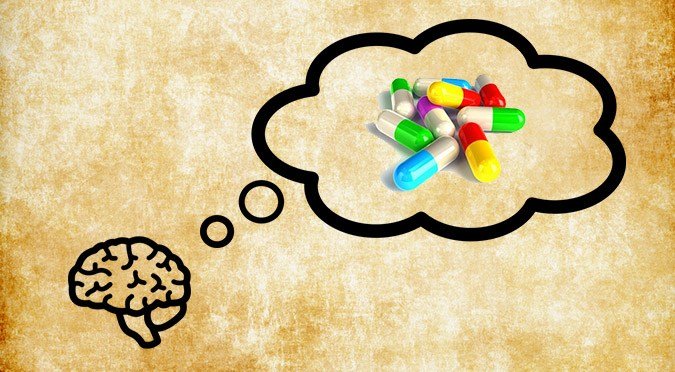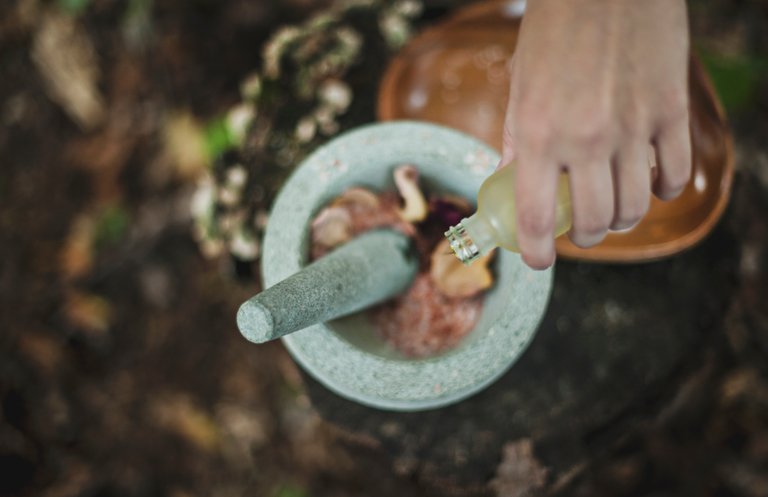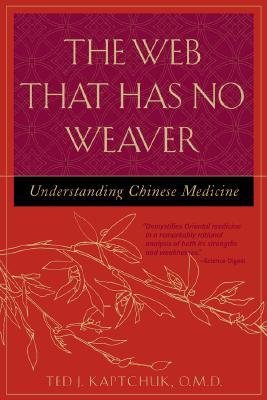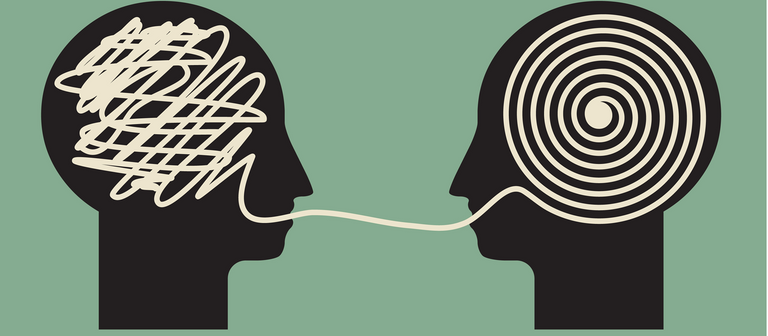Putting The Placebo Effect To Work
There is a perennial debate over the efficacy of natural and alternative medicine. The moderate scientific explanation usually involves something called the "placebo effect", that it's all a trick of the mind. But scientific research into this phenomenon may be changing the perspective on the efficacy and usefulness of placebos in mainstream therapeutic treatments.

image source
There is some really interesting research going on at Harvard Medical School, looking at placebos and their effect.
For those of you who don't know, a placebo is a medicine or treatment prescribed for the psychological benefit to the patient rather than for any physiological effect. It can be a substance that has no therapeutic effect (apparently), usually used as the 'control' in a Randomised Controlled Trial (RCT).
This article from Harvard Medical is quite enlightening, and suggests that there are those in the mainstream medical community who want to know why and how placebos appear to sometimes have a positive and therapeutic effect.
...what we call the placebo effect may involve changes in brain chemistry — and that the placebo effect may be an integral part of good medical care and an ally that should be embraced by doctors and patients alike.
Some of the ground-breaking research has been conducted by Ted Kaptchuk. Some of you may have read his book The Web That Has No Weaver.
Kaptchuk began his career as a practitioner of Traditional Chinese Medicine before beginning his career as a medical researcher.
This TEDMED video is an amazing insight into the kind of research they're doing, and more importantly, what they have been finding. It really will blow your mind somewhat at some of the findings he mentions in this video.
Essentially, it seems that placebos as a form of treatment are beneficial; current research is suggesting that the placebo effect makes a change to brain chemistry, and this change can have some further physiological effect.
One of the other key points in the video is the value of the patient-therapist relationship in the Placebo Effect, and the patient's choice and willingness to believe in a particular type of treatment — and it doesn't matter what that treatment is, just that the patient believe in it!!
Of course there is the warning about "quacks and charlatans" who " exploit the placebo effect to peddle treatments that are useless, and even harmful, if for no other reason than they keep people from getting treatment that is directly effective".
Presumably, that is directed at practitioners of Complementary & Alternative Medicine, because medical doctors are the only ones qualified to administer placebos.... a cartel protecting their turf, maybe?
Language and the brain
And then there is this interesting article on the neuroscience of your brain while reading fiction, and how it interprets language.
Metaphorical language seems to connect us better, and we respond better when we have evocative, rich, and metaphorical words used to describe things. In the brain, there are certain responses to such descriptions. I have always personally experienced a greater grasp when someone has explained something to me using 'natural' words, rather than being encoded in specific lingo.
I would suggest this is part of the attraction to therapies such as Chinese Medicine, as descriptions of physiology, pathology, and treatment are always given using naturalistic metaphors, rather than the cold, scientific (yet precise) language of medicine.
Everyone knows and understands the actions of cold, heat, dampness, dryness, and wind; but how many truly comprehend what is meant by metastasis, idiopathic, or abiotrophy?
When practitioners speak with people on their level, they are making a concerted effort to connect with their patients, not trying to laud themselves as authorities, or somehow superior to them.
I feel this is part of the beneficial patient-therapist relationship. How can you trust someone who is placing themselves 'above' you, or somehow aloof or detached from you?
By explaining the different paradigm that Chinese Medicine is, we can be open about the placebo effect, and yet also using the evocative and metaphorical language of natural phenomenon.
If one has a frozen shoulder, then telling a client that it would be treated with "heat or warmth" will elicit the placebo effect in a patient; everyone knows that when heat is applied to something frozen, it will thaw. This idea is perfectly within the bounds of the laws of nature; provided the skin is not burned or scalded (the practitioner's duty of care to the patient is to "do no harm"), the placebo effect as well as the patient's own self-healing abilities means that movement will return to the arm in such cases.
But is it enough to merely say that the application of heat will bring movement back to a frozen shoulder?
If belief is part of the action of the placebo effect, would we not need to introduce the patient to a belief system that they can be part of and actively participate in? In the West, we are all ingrained into the Western model of 'scientific medicine'; I would argue that you would be hard-pressed to find anyone in Australia who does not believe that scientific medicine works.
And yet, there is a sizeable number of people turning to non-scientific/medical alternative therapies such as Chinese Medicine, Herbalism, and many other forms of 'natural medicine'.

Photo by Katherine Hanlon on Unsplash
Belief as therapy
Are they perhaps seeking an alternative belief system? As much as we believe in the scientific model, do we also somehow feel personally disconnected from this belief system?
Perhaps the problem lies in that whilst we know that scientific medicine works on an intellectual level, are we also seeking something that actually makes us feel better?
Are we wanting to connect with a warm, compassionate, and empathic practitioner who will care for us and nurture us when we feel ill and vulnerable?
Are we in fact moving away from the cold, sterile, lab-like environments of doctors' clinics and hospitals in favour of warm, comfortable, and home-like environments where the practitioner is more of a 'healer' rather than a 'doctor'?
If the perception of the patient is important, then it is the responsibility of all health/medical practitioners to give their patients the attention that they are wanting. This is tricky, as everyone expects/wants/needs something different, and then there is (especially for our over-run General Practitioners) the issue of time constraints.
We all need to create a belief system of wellness and healing, something that is personal, nurturing, and effective. Perhaps the blending of the Eastern and the Western paradigms will be the first step to creating a healthy system that provides what all the people need!


CREATE YOUR OWN @REVIEWME PROFILE TO START EARNING CREDIBILITY STARS FROM THE COMMUNITY!
CREATING YOUR PROFILE IS EASY! JUST FOLLOW THE STEPS HERE ☜(ˆ▿ˆc)












For me the placebo makes perfect sense, once you realise that stress is the immune system's worst enemy. As long as someone believes they'll get well, then you've passed the biggest hurdle and the immune system can get to work.
Mind over matter is no laughing - er - matter. I believe I was given a few placebos in the past and was overcharged for them LOL
What’s really scary is how many drugs on the market are using the placebo effect to work!
The Web That Has No Weaver... I'm not familiar with this book but am very intrigued. Sounds very decentralized! Could NOT agree more that our health requires a belief system. I can feel my own health and energy levels move directly with my thoughts. In fact, I sometimes make up my own placebos, convincing myself that this or that thing is "good for me." And it always is.
The placebo effect (which I think is a bit of an insult term) just proves the body's ability to heal itself.
Yup.
I just listened to an awesome podcast (eerily) that has me thinking about some other amazing cool stuff about this, I’ll write a follow-up and link to it, coz it’s awesome. I think you’ll love it!
Placebo, a way to get people who not are awake to tsp into the natural healing power.
Posted using Partiko iOS
And yet, placebos still work on people whether they’re ‘woke’ or not.
Some of the research has even showed that placebos work even when they’re told it’s a placebo!!! That shit is awesome! Natural healing power indeed!
I just listened to an awesome podcast on this topic, so I plan to do a follow-up...
Thanks for stopping by 😊🙏🏽☯️